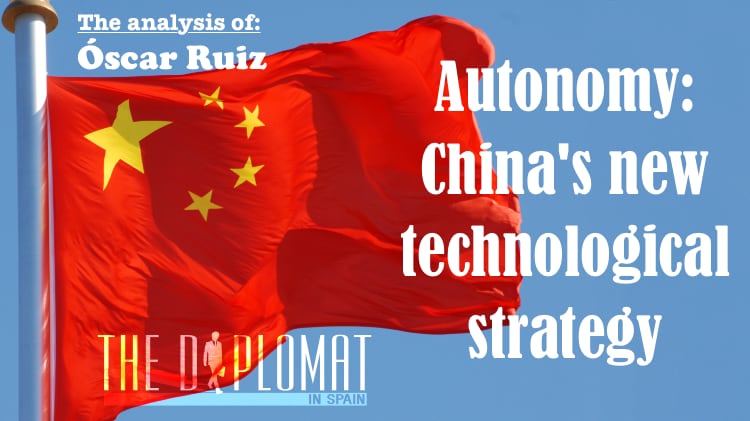SUMMARY
Document 79 is a Chinese government directive that resonates as a clear statement of change in international technology relations. The initiative, spearheaded by Xi Jinping, is not just limited to hardware but affects vital sectors such as energy and finance. And it also has implications for global technology companies at a time of growing tensions with the United States.
Óscar Ruiz / Escudo Digital
In a major shift towards technological self-sufficiency, China has launched Document 79, a government directive that resonates as a clear statement of change in international technological relations, especially with the United States. This move, dubbed “Eliminate A” (Eliminate America), is not just a policy, it is a declaration of technological independence that seeks to redefine the global technological landscape.
China’s technology infrastructure has long been (relatively) dependent on a number of major American technology companies such as IBM, Dell and Cisco, as these US brands have facilitated the remarkable growth of their Chinese counterparts. However, with Document 79 released last September 2022, the country is determined to disengage from this dependence, aiming for an era of domestic innovation and long-term national security.
Document 79 talks about an ambitious plan for Chinese state-owned enterprises to replace foreign software with domestic alternatives by 2027. This edict, part of a broader drive towards self-sufficiency in critical technology, from semiconductors to supply chain management systems, suggests a significant shift in China’s approach to technological development and independence.
The initiative, spearheaded by Chinese leader Xi Jinping, is not just limited to hardware, where giants such as Microsoft and Oracle are losing ground, but also affects vital sectors such as energy and finance, where Chinese domestic technology is beginning to take the lead. It also focuses on strengthening domestic supply chains, reducing China’s dependence on the West in critical areas such as food, raw materials and energy.
China’s strategy, however, is not simply a matter of technological replacement. It is an ongoing effort to harness the purchasing power of the country’s massive state sector to foster domestic innovation and close the technological gap with Western rivals. With state spending exceeding 48 trillion yuan (approximately $6.6 trillion) by 2022, the economic impact of this policy is monumental.
Document 79 also comes at a time of rising tensions between China and the United States, especially in the technology sphere, where export restrictions and sanctions have affected Chinese technology companies. This geopolitical context underscores the importance of technological self-sufficiency for China’s national security and its position on the world stage.
But the road to self-sufficiency is not likely to be an easy one either. Although Chinese state-owned enterprises have increased their purchases of domestic technology, the complete substitution of foreign software and hardware raises concerns in the industry about the stability and performance of local alternatives. In addition, the transition to domestic technologies may temporarily affect efficiency and productivity, as some Chinese products still fall short of the standards of their Western counterparts.
Despite these challenges, the push towards domestic technology has led to significant improvements in the quality and competitiveness of Chinese products. Operating systems such as KylinOS, developed with military ties, have evolved considerably, approaching in functionality earlier versions of Microsoft’s Windows. This, together with the integration of key applications such as WeChat into the enterprise software ecosystem, positions China to achieve its self-sufficiency goals.
China’s strategy not only has implications for its own economy and security, but also for global technology companies. Giants such as IBM, Cisco, and Dell have seen their share of the Chinese market decline, while specialised Chinese technology companies are rapidly rising, challenging the long-standing dominance of Western brands.
Looking ahead, China’s preference for domestic over foreign technology could further widen the gap between Chinese technology companies and their Western rivals. This underscores a critical point: in the age of global technological competition, innovation and adaptability are not simply advantages; they are survival imperatives.
Document 79 is not just a policy, it is clearly a symbol of China’s new technological and geopolitical paradigm. As the country moves towards self-sufficiency, the impact will be felt not only within its borders, but throughout the global technological sphere. The question now is not whether China will achieve its goal, but how long it will take to do so, and at what cost, and what this will mean for the global balance of technological power.

ÓSCAR RUIZ
International analyst and migration expert
Career Marine with more than 30 years of experience. Nine years stationed at NATO Headquarters in Belgium and Sarajevo developing intelligence and information security functions.
Military missions in Africa, America and Europe. Lecturer and speaker on subjects such as jihadist terrorism, migration challenges and maritime security.







